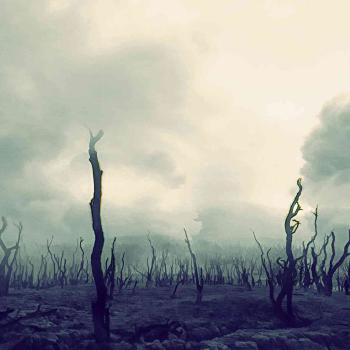To say that being an empath is a bit of a trend nowadays would be an understatement. I see online quizzes about how to determine if you’re an empath, lists of traits, and more circling around social media and other avenues. Most of the quizzes and literature I’ve seen to “identify” if you’re an empath have a lot of false information. Chances are, most of the people claiming to be empaths are not actually empaths. This post is all about debunking some of the myths about being an empath, and to shed some clarifying light on what an empath actually is.
Poor Boundaries or Empath?
I figured I would just dive in to this one. Many of the people who claim to be empaths are often either highly sensitive people, introverts, or people with poor boundaries. It is possible and common to not be an empath and to “take on” the emotions of the people around you. It boils down to acting from the subconscious cues of others and sometimes, poor boundaries.
If you’re around a cranky person, often times that crankiness will spread to you or others around you. Same with being around someone who is joyful. It’s one mood acting on and influencing another in a psychological way- often subconsciously- but just because the mood of the folks around you affects you doesn’t mean you’re an empath. This is actually a psychological phenomenon called “emotional contagion.”
If someone you talk you leaves you feeling drained, it doesn’t mean you’re an empath, it just means that person doesn’t give you energy, but only takes. If this happens regularly it means you surround yourself with takers. This tends to fall under having poor personal boundaries and often coincides with trouble saying “no.”
Sometimes people who think they are empaths are actually just codependent and trying to manage the people around them out of fear. Poor boundaries and being empath do go hand in hand much of the time specifically when the empath isn’t trained, but having poor boundaries doesn’t make a person an empath.
Highly Sensitive Person or Empath?
Attempting to discern what someone else is thinking or feeling is common in many relationships and sometimes it’s prudent, but sometimes it’s simply coming from a place of fear. This is also true of the tendency to over-give or prioritize others above yourself in a self-destructive way. These actions are often confused with being an empath because the focus is so much on someone else, but again they are not the same thing.
Perhaps people go to you for a shoulder to cry on, and you are easily affected by violence and the pain of others, or other outward stimulation. This alone also doesn’t make you an empath. This is mainly an indicator that you are a highly sensitive person (and that people trust you and turn to you, which is really its own gift).
Introversion Doesn’t Make You an Empath
Finally- there are no defining personality traits of an empath. Being an introvert (a person who needs time alone to recharge) does not make you an empath. Being a person who loves animals or travel or hates lies does not make you an empath. Empaths are as varying in personality as the entire human race. No list of personality traits written online can tell you if you’re an empath.
Ok, so what is an empath then?
The main trait of an empath is clairsentience. This goes well beyond having empathy. It is energetic sensing that takes information into the body of the empath. So for an untrained empath, someone else’s pain is your pain- literally.
For example: Feeling the symptoms of ill persons around you even if they don’t show outward signs of being ill. Sometimes, you will even feel the symptoms before they become fully ill. Sometimes, you will feel it when they aren’t even around you only to find out later that this person was ill. You could go to the doctor with these symptoms and the doctor would find nothing- because it isn’t your illness. Instead of recognizing that someone around you is cranky based on subconscious cues or other recognition and then becoming cranky yourself, you will just feel the crankiness like it’s your own mood out of no where.
Other Discerning Traits
Psychological fixes don’t work for empaths. For example, if you’re a highly sensitive person and you keep going over in your mind what someone else is going through, you can generally shift your attention and the matter will be put to rest. If you’re an empath picking up this person’s energy, you can do all the shifting of perspective and attention you want but that tie will still be there and you will still be feeling that person’s energy until you learn to separate.
Empaths feel everything in their bodies. So if someone lies to you, you know it, and it feels discordant. You know when people you have an energetic connection with are talking about you whether they are in the next room or miles away. You can feel it.
Untrained Empaths
For untrained empaths, there are no energetic boundaries. They don’t know what is energetically theirs and what belongs to other people. Because of this life is miserable. I don’t think I can highlight this enough. It’s not some fabulous special unicorn experience of love and angel poop. It can be terrifying and overwhelming. It is often quite painful. Many untrained empaths do get literally sick from the energy of others.
An untrained empath often doesn’t know what they themselves really feel, need, or want because distinguishing the me from the we has so far never been done and the difference can be incredibly difficult to tell because it all feels like it’s theirs, even if it’s not.
So if you’re not an empath, count your blessings for what you don’t have to experience and go through. Being an empath can be a great gift if you’ve trained yourself to determine where you end as others begin because then you can choose how and when you use this ability instead of being totally swept up and lost in it. Many empaths end up not leaving their homes, otherwise.
One last note…
If you are an empath, this doesn’t require you to be at the beck and call of anyone. Tapping into what someone feels doesn’t mean you have to attempt to rescue or help them. Learning to discern when it’s good for you to engage is so important. Your responsibility to your own well being must come first. You do not exist to solely be a conduit for the healing of others. You can live a life that is fully yours and still utilize this ability in healthy ways.
About the Author
Jessica Jascha is an herbalist, psychic, and writer in Minnesota. You can find her at jaschabotanicals.com or on Facebook
Featured Image by Pixabay












